
Korea KC Mark Safety Certification Introduction
Korea kc certification (Korea Certification) is a crucial product safety certification standard for entering the Korean market. It applies to various consumer products, including electrical appliances, household goods, and children's products. This article aims to introduce relevant information about KC certification and provide compliance guidance for related businesses.
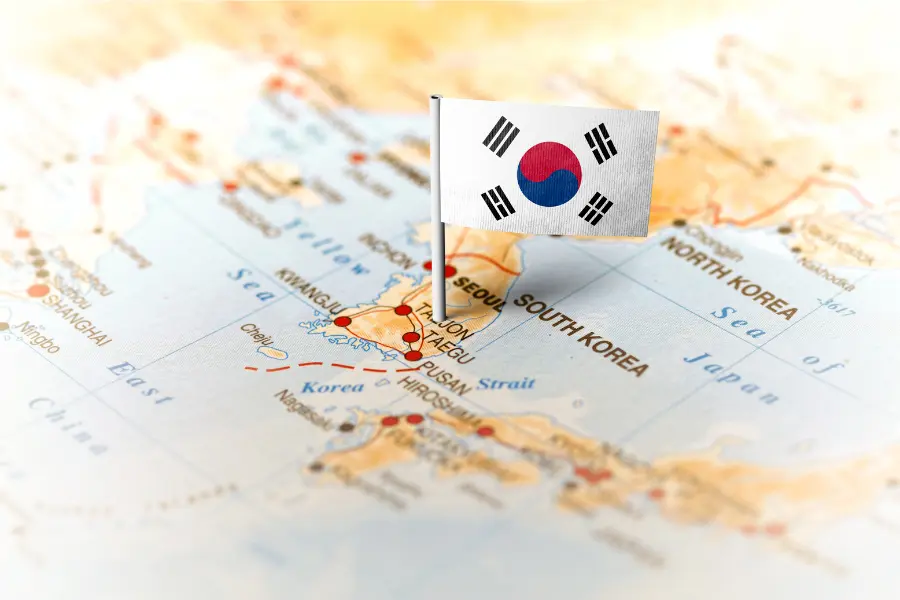
What is KC Certification?
KC Certification (Korea Certification) is a national unified certification standard launched by Korea in 2009. It aims to integrate different certification systems and ensure that products meet Korea's safety standards. The certification focuses on preventing and REDucing potential hazards to consumer health and safety.
All products within the mandatory regULatory scope must pass KC certification before they can be sold or imported into Korea. If products are sold in Korea without proper KC certification, they may be recalled, and the related manufacturers, importers, and/or sellers may face additional econoMIC penalties or even sales bans.
The Korea Agency for Technology and Standards (KATS) is responsible for the KC safety certification system in Korea. KATS, under the Ministry of Trade, Industry, and Energy (MOTIE), establishes the regulatory framework for introducing new consumer products. The agency also sets new standards and represents Korea in international standard coordination efforts, ensuring that Korean standards are generally consistent with international standards.
Types of KC Certification
In the KC certification system, each product category has three different types of certifications, corresponding to the level of hazard from high to low: "Safety Certification," "Self-Regulatory Safety Confirmation," and "Supplier Declaration of Conformity." Products identified with significant hazards require "Safety Certification"; those with potential hazards need "Safety Confirmation." Below is an introduction to these three types of certifications.
Safety Certification
"Safety Certification" involves product testing and factory inspection to certify product safety. This is the most stringent and complex type of KC certification. It requires not only product testing but also a review of the production facility, with regular follow-up inspections to maintain certification validity.
Safety Certification Process:
1. Certification Application
2. Acceptance and Verification
3. Factory Audit and Product Testing
4. Evaluation
5. Issuance of Certificate
6. Supervision Inspection (once every 2 years)
Safety Confirmation
"Safety Confirmation" ensures compliance with safety standards through testing by a recognized institution. This type requires product testing and application submission to complete the certification process. No factory audit is necessary for this type.
Safety Confirmation Process:
1. Certification Application
2. Acceptance and Verification
3. Product Testing
4. Evaluation
5. Issuance of Certificate
Supplier Declaration of Conformity
"Supplier Declaration of Conformity" (self-declaration) involves self-verification through direct product testing or by requesting third-party testing to prove product compliance with safety standards. In this type, manufacturers must ensure their products meet Korean standards and can demonstrate the relevant proof of conformity. Usually, conducting tests within Korea is the simplest way to verify compliance. Since there is no certification application, there will be no certification number.
Supplier Declaration of Conformity Process:
1. Product Testing Application
2. Product Testing
3. Issuance of Test Report
4. Labeling with KC Mark
Different product testing standards can be referenced here:
https://www.kats.go.kr/content.do?cmsid=304
What are the Controlled Product Categories?
If certain consumer products may pose threats to consumer health and safety during use or cause environmental pollution, they typically need KC certification in Korea. KC certification mainly applies to electrical products, household goods, and children's products. Laws like the "Electric Appliances and Household Goods Safety Control Act" and the "Special Act on the Safety of Children's Products" provide detailed classifications and requirements for these products.
1. Electrical Products
According to the "Electric Appliances and Household Goods Safety Control Act," "electrical products" refer to industrial products and their parts or accessories used by connecting to AC or DC power.
(1) Electrical Products Requiring Safety Certification
Electrical products needing safety certification are considered high-risk due to their structure or usage, potentially causing fire or electric shock. These products use AC or DC power below 1000 volts and are listed in Appendix 3, Item 1 of the "Electric Appliances and Household Goods Safety Control Act."
(2) Electrical Products Requiring Safety Confirmation
Electrical products requiring safety confirmation are those that may pose fire or electric shock hazards due to their structure or usage. These products use AC or DC power below 1000 volts and are listed in Appendix 4, Item 1 of the same act. Note that point 3 in the list specifies energy storage devices with rated voltage below 1500 volts AC or DC.
(3) Electrical Products Requiring Supplier Declaration of Conformity
These products use AC or DC power below 1000 volts and are listed in Appendix 5, Item 1 of the same act.
2. Household Goods
According to the "Electric Appliances and Household Goods Safety Control Act," "household goods" are industrial products that can be used in daily life without additional processing (excluding simple assembly) or their parts or accessories (excluding electrical products).
(1) Household Goods Requiring Safety Certification
These goods are considered high-risk due to their structure, material, or usage, potentially causing harm to consumers' lives, bodies, property, or the environment. They are listed in Appendix 3, Item 2 of the same act.
(2) Household Goods Requiring Safety Confirmation
These goods may pose risks to consumers' lives, bodies, property, or the environment due to their structure, material, or usage. They are listed in Appendix 4, Item 2 of the same act.
(3) Household Goods Requiring Supplier Declaration of Conformity
These goods are unlikely to cause accidents or harm during transport, use, or handling but are difficult for consumers to distinguish by composition, performance, or specifications. They are listed in Appendix 5, Item 2 of the same act.
Children's Products
According to the "Special Act on the Safety of Children's Products," "children's products" refer to items used by children under 13 or their parts or accessories, excluding the following:
- Drugs and quasi-drugs as defined in Article 2 of the Pharmaceutical Affairs Act;
- Medical devices as defined in Article 2 of the Medical Devices Act;
- Cosmetics as defined in Article 2 of the Cosmetics Act;
- Tableware and food containers/packaging as defined in Article 2 of the Food Sanitation Act;
- Recreational facilities and equipment as defined in Article 33 of the Tourism Promotion Act.
(1) Children's Products Requiring Safety Certification
These products are high-risk due to their structure, material, or usage, potentially causing harm to children's lives, bodies, or property. They are listed in Appendix 1 of the same act.
(2) Children's Products Requiring Safety Confirmation
These products may pose risks to children's lives and bodies due to their structure, material, or usage. They are listed in Appendix 2 of the same act.
(3) Children's Products Requiring Supplier Declaration of Conformity
These are children's products not falling under safety certification or safety confirmation requirements. They are listed in Appendix 3 of the same act.
What is the KC Mark?
If a product successfully passes Korea's KC certification, the manufacturer or importer must add the KC mark to the product or its packaging. The KC mark is proof that the product has undergone necessary safety tests and reviews and complies with Korean safety standards. For consumers, it is a crucial reference indicating that the product is safe and reliable.
1. Mark Design
Depending on the type of certification, the KC certification mark is usually gold, blue, or black and includes the product certificate number. Additionally, the label generally needs to indicate product-related information (such as model name, manufacturer name, and rated voltage) in Korean, with optional English.
KC certification examples, with the product certificate number (if any) added below the mark:
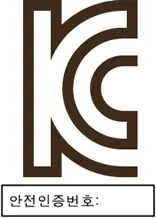
- The size of the KC certification mark should be adjusted based on the size of children's products, with width and height requirements specified.
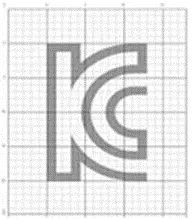
- The KC certification mark's color:
- The KC certification mark is typically gold (KS A 0062 - 10YR 6/4), blue (KS A 0062 - 5PB 2/8), or black (KS A 0062-N2).
- For products requiring safety certification, the mark must be gold or black, with the safety certification number below it.
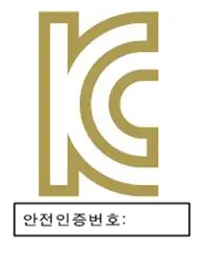
- For products requiring safety confirmation, the mark must be blue or black, with the safety confirmation number below it.
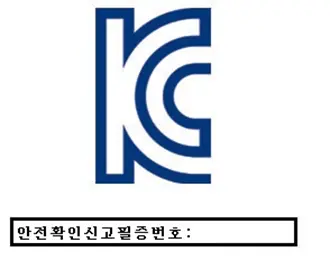
- For products requiring supplier declaration of conformity, no certification number is included, and the mark can be blue or black.
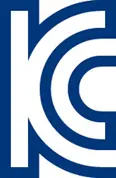
2. Children's Safety Packaging KC Mark
According to Appendix 9 of the "Electric Appliances and Household Goods Safety Control Act," children's safety packaging requires KC certification and a black KC mark. For relevant label design and requirements, refer to [https://www.kats.go.kr/content.do?cmsid=49](https://www.kats.go.kr/content.do?cmsid=49). Relevant examples are as follows:
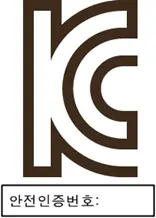
Special Certification—KC emc certification
Products using radio frequency (RF) technology need additional kc emc certification to enter the Korean market. This applies to products with wireless technology such as Wi-Fi, Bluetooth, RFID, or other wireless communication using radio frequencies.
KC EMC certification ensures that electronic devices and products using wireless technology in Korea comply with electromagnetic compatibility (EMC) standards. Most electronic information, communication, and communication equipment sold in Korea must register for KC EMC to confirm that the product's electromagnetic compatibility meets effective regulations and is harmless to users. Since 2011, KC EMC certification has been part of the KC certification system, marked with the unified KC logo.
KC EMC certification is divided into electromagnetic compatibility conformity certification, conformity registration, and temporary certification. The related product categories are as follows:
Conformity Certification:
- Ship station radar
- Wireless facilities for integrated public networks
- Wireless equipment for mobile communication
- Wireless equipment for level measurement radar
- IPTV set-top boxes, etc.
Conformity Registration:
- Computers, monitors, electric vacuum cleaners, electric washing machines, electric blankets and mats, electric tools, electric scooters, lighting equipment, etc.
- Measuring instruments, industrial instruments, industrial computers, etc.
Temporary Certification:
- New development equipment without composite evaluation standards
Email:hello@jjrlab.com
Write your message here and send it to us
 IEC 62471 Photobiological Safety of Lamps and Lamp
IEC 62471 Photobiological Safety of Lamps and Lamp
 New European Toy Standard EN 71-1:2026
New European Toy Standard EN 71-1:2026
 EN71 Series Standards Compliance February 13, 2026
EN71 Series Standards Compliance February 13, 2026
 European Toy Safety Standard EN 71-20:2025
European Toy Safety Standard EN 71-20:2025
 EN 18031 Certification for Connected Devices on Am
EN 18031 Certification for Connected Devices on Am
 Compliance Guide for Portable Batteries on Amazon
Compliance Guide for Portable Batteries on Amazon
 2026 EU SVHC Candidate List (253 Substances)
2026 EU SVHC Candidate List (253 Substances)
 LFGB Certification Cost and Timeline Guide
LFGB Certification Cost and Timeline Guide
Leave us a message
24-hour online customer service at any time to respond, so that you worry!




